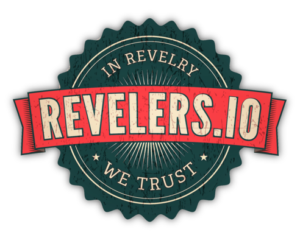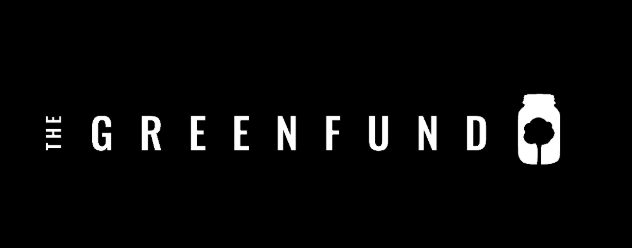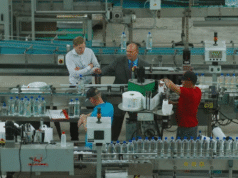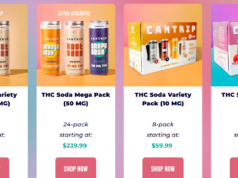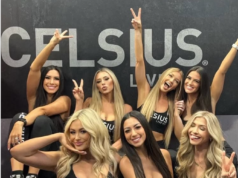Coca Cola is the most recognizable brand in the world. Children see Coke as the elixir of life. Parents, on the other hand, see Coke as the drink that turns their little angels into monsters.
Though Coke’s effect on children is no mystery. The hyperactivity caused by Coke consumption is the well-known effect of the high amounts of sugar in each can. Though in some ways, sugar is a step up from Coke’s previous drug of choice. As many will know, the primary ingredient of Coca Cola was once cocaine.
Many will think that having cocaine in a soft drink is absurd, while others will wish it was still the case.
Now, a new substance is in the running to be a central ingredient within Coca Cola: CBD.

Unlike cocaine or sugar however, many believe CBD is the next big super-food. If you don’t know what CBD is check out our posts on the compound, the industry and areas where the compound is popping up such as for pets, for athletes and within the Wellness community.
Last September Coca Cola was in conversation with Aurora Cannabis (TSE: ACB) over potentially incorporating cannabidiol into their range of drinks.
While the talks sparked up a lot of interest, we won’t be seeing a green “canna coke” anytime soon. Since the murmurs of CBD Coke have emerged, the company’s CEO James Quincey has dispelled any CBD talk, saying that there “aren’t any plans” currently for Coke to enter the CBD market.
Though having an alleged “super-food” in their drinks might not be such a bad idea, as Coke’s sales aren’t doing too well. Due to an increased focus on wellness and health, Coca Cola and Pepsi sales are going down, while bottled water sales are going up.
According to Business Insider, in 2017 carbonated-soft-drink sales declined 1.3 percent, while bottled water grew 6.2 percent.
In fact, in order to combat this decline in sales, Coke has had to make a shift towards sparkling water.
“I think that the U.S. consumer, from a transactions point of view, is increasing its transactions of sparkling drinks.”
– Coca Cola chairman Muhtar Kent
People are becoming more conscious of what goes into their bodies, leading beverage companies to become more conscious of what they put in their drinks. Now, companies both inside and out of the wellness sphere will have to consider ways to keep their consumers happy, with many turning to CBD as the answer.
Spin The Bottle: The CBD Beverage Market
The Global beverage industry is set to reach an estimated $1.9 trillion by 2021 at a 3 percent growth rate during between 2016 and 2021. Though within the industry there is an emergent trend; that of a more natural drink.
A subset of the beverage industry is the organic beverage industry, which is projected to grow at 8.3 percent over the next three years – close to triple that of the global beverage industry itself.
In Germany in 2017, 25 percent of all new food and beverages on the market were organic, with a majority of consumers mentioning they wished there were more organic products.
Now, thanks to the broad and growing range of health benefits achieved by CBD consumption, consumers are getting a thirst for the cannabinoid compound in their drinks. While the legality of CBD-infused drinks is murky, Consumer Reports state that there are already hundreds of CBD-infused products on the market in the US.
Zenith Global predicts that cannabis infused drinks will grow to over $1.4 billion by 2024 – fifteen times the amount of Cannabis drink sales in 2018. Juice, coffee, tea, alcohol, soft drinks and water; no matter what your drink of choice is, chances are there’s a CBD version on the market.
“All beverage companies, including coffee and soda makers will inevitably embrace CBD-infused drinks.”
– Paul Rosen, CEO of Tidal Royalty, a cannabis-centric financing firm
And because of the buzz around CBD beverages, you can bet a lot of the biggest players in the beverage industry have their eyes on adding the compound to their own drinks.
Around the same time Coke was in conversation with Aurora about releasing a CBD range, Corona and Modelo raised their stakes in Canopy Growth by $4 billion bringing them up to 38 percent ownership. Heineken also released their Hi-Fi Hops last year, acannabis beverage that comes in a THC version and a hybrid of THC and CBD version.

Causing A Stir: Who Are the Big Players?
As giants such as Corona and Coke dip their toes in the CBD market, others are diving in head-first to jump aboard the CBD craze.
One of the biggest players in the CBD beverage market is Alkaline Water Company(NASDAQ: WTER).
Sold in over 47,500 stores including Walmart, the Alkaline Water Company has a market share of $99.465 million and has just announced the launch for it’s hemp-based CBD-infused ‘A88 Infused Beverage Division.’
Partnering with the International flavour house Ungerer Company, Alkaline is embedding itself deeply into the CBD beverage market.
“Ungerer has taken their skills to another level and solved the impossible; they have created a great tasting flavoring to use in our hemp-extract water. This product is low in calories, high in all-natural flavors, and does not have a ‘hemp’ after-taste.”
– Mr. Wright, President and CEO of The Alkaline Water Company.
Accompanying Alkaline in the CBD-infused water game is Caliva, an established retailer of Cannabis products across California.
Caliva has recently acquired Zola—a natural beverage company which distributes to over 7000 stores—in order to make it’s way into the CBD beverage space.
From sparkling water, teas, cold brew coffee and sports drinks, Caliva and Zola have every base covered. Caliva plans to distribute it’s hemp-derived CBD drinks this September with a quick roll out thanks to Zola’s vast network of distributors according to Zola founder Chris Cuvelier.
“Caliva is proud to do so with Zola as our partner. Zola has a very successful track record in creating delicious, healthy and functional beverages and we look forward to extending this line into hemp-CBD based beverages and offering the range to Zola’s impressive network of over 7,000 retailers,”
– Dennis O’Malley, CEO of Caliva
Another big player in the CBD beverage space is Green Roads, which occupies 6 percent of the market.
Specializing in CBD-infused tea, coffee and decaf coffee beans, Green Roads has their finger on a strong pulse.
According to a new report published by Allied Market Research, the global coffee beans market size was valued at $10.4 billion in 2017, and is predicted to reach $15 billion by 2024.

Fact or Just Fizz: Where’s CBD Headed?
The research behind CBD beverages is scant to say the least. While much of the anecdotal evidence is positive, it’s not all sunshine and rainbows for CBD beverages.
On one hand, some are calling CBD the next big super-food, capable of solving many of life’s ailments. This follows on from benefits found through consumption of tinctures, oils gummies and other CBD products, which are said to reduce anxiety, give users better sleep and decrease depression.
However, whether or not these same benefits are experienced through CBD teas, coffees and juices is another question. Some anecdotes from consistent consumers of CBD coffee report feeling more “anxious and sluggy” after drinking the canna-coffee regularly.
While anxiety is a common symptom of regular coffee use, it makes people wonder whether or not CBD will have much benefit when combined with stimulating drinks.
“There’s a lot of interest and excitement, for good reason, but I think people are pushing it too hard, too fast and are overgeneralizing things,”
– Ryan Vandrey, Professor at Johns Hopkins
Despite these anecdotal claims, the skepticism isn’t as loud as the excitement surrounding CBD, and it hasn’t had much success slowing down the bulldozer effect of CBD in the global market.
The growth of the industry shows that people want to integrate CBD into their lives whenever and wherever possible alongside the growing trend towards wellness.
While the verdict is still out on the benefits of CBD drinks, it’s certain that if more positive research pours forth, so too will the beverages.
The Green Fund
